Mr. Hulot’s Holiday [Les Vacances de M. Hulot] (1953)
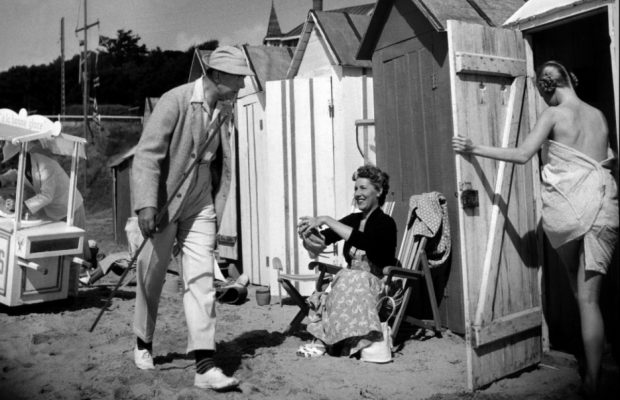
Toronto Film Society presented Mr. Hulot’s Holiday [Les Vacances de M. Hulot] (1953) on Thursday, August 31, 1967 as part of the Season 19 Summer Series “And On to the Present”, Programme 3.
Any Old Port USA 1932 Sound 21 mins b&2 16mm
Presented by Hal Roach. Releasing Company: MGM. Director: James W. Horne. Dialogue: H.M. Walker. Photography: Art Lloyd. Editor: Richard Currier. Sound: Elmer Roguse.
Cast: Stan Laurel, Oliver Hardy, Walter Long, Jacqueline Wells.
“Mr. Laurel and Mr. Hardy were just home from a whaling voyage…Mr. Hardy shipped as head harpooner…Mr. Laurel went along as bait…” Produced gales of laughter at the TFS 1967 Seminar, so we thought we would share it with you again.
The Scarlet Pumpernickle USA 1950 Sound 7 mins colour 16mm
Production Company: Warner Brothers. Director: Charles M. Jones. Story: Michael Maltese. Animation: Phil Monroe, Ben Washam, Lloyd Vaughan, Ken Harris. Layouts: Robert Gribroek. Backgrounds: Peter Alvarado. Musical Director: Carl Stalling. Voice Characterizations: Mel Blanc.
Cast: Daffy Duck, Porky Pig, Mama Bear and a cast of thousands.
Ever wondered why Hollywood stopped making swashbuckling historical dramas? This movie is the answer. Daffy, tired of playing comedy, writes script for himself and outlines it to J.B. Warner. It would be difficult for anyone to buckle another swash with a straight face after seeing this one. Daffy’s plaintive line as he picks himself up off the floor, “This never seems to happen to Errol”, just about sums it up.
Adventures of a Boy and is Birthday Suit [Dobrodruzstui S Nahym Klukem] Czechoslovakia 1965 Sound 22 mins b&w 16mm English sub-titles
Direction and Script: Jan Moravec, from a story by Jaroslav Hasek. Photography: Ivan Fric. Music: Emil Ludvik. Editor: Jan Kohout. Film availability: Embassy of the Czechoslovak Peoples’ Republic, Ottawa, Ontario.
Cast: Eman Fiala (the boy).
A delightful comedy which examines several aspects of human nature in a most revealing way (pun intended). The superb Czech cinema of recent years, besides technical fluency, is noteworthy for its sense of humour and its constant interest in people, and these characteristics are epitomized in miniature in this little gem.
Notes by Ron R. Anger
– Intermission 10 minutes –
Mr. Hulot’s Holiday [Les Vacances de M. Hulot] (1953)
Production Company: Cady Films and Discina. Producer: Fred Orain. Director: Jacques Tati. Assistant Director: B. Maurice. Script and Dialogue: Jacques Tati and Henri Marquet, in collaboration with P. Aubert and J. Lagrange. Photography: Jacques Mercanton and Jean Mousselle. Editors: Jacques Grassi, Bretoreiche and Baron. Art Directors: Henri Schmitt and R. Briancourt. Music: Alain romans, played by A. Barelli.
Cast: Jacques Tati (Mr. Hulot), Nathalie Pascaud (Martine), Michelle Rolla (The Aunt), Valentine Camax (The Old Maid), Louis Perrault (The Boatman), André Dubois (The Colonel), Lucien Fregis (The Hotel Proprietor), Raymond Carl (The Waiter), René Lacourt (The Stroller), Marguerite Gérard (The Stroller’s Wife).
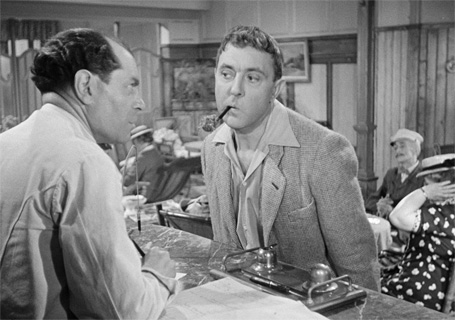
Mr. Hulot on holiday is determined to be gay. Mr. Hulot, ever courteous, is determined to be friendly and helpful. And almost no-one loves him for it.
Many people think this is the funniest film they have ever seen. Others wonder why: parts of it are excruciatingly funny, certainly, but in other sequences nothing very much seems to be happening, the pace is slow, and the dialogue sparse and unintelligible.
Luis Buñuel and Salvador Dali in Chien D’Andalou used the image of a razorblade approaching a woman’s eyeball to shock the spectator into visual awareness. The gentler Jacques Tati, in each of his films, uses the device of a Watcher who guides us towards full enjoyment of what is happening. In Jour de Fete it is the little old woman in the white cap who comes out into the early morning street and who, at the end of the film, gives Tati’s bewildered postman the excellent advice that releases him. In Mr. Hulot’s Holiday the chief Watcher is the Stroller, Alfred, forever trailing behind his large and stupefyingly boring wife. In Mon Oncle, Mr. Hulot himself and his small nephew, in silent conspiracy, are both Watcher and victim. Who will be the Watcher in Mr. Tati’s 1966 film, Playtime?
What there is of dialogue in these films is deliberately faltering, jumbled and “unimportant”, because it is a parody of the meaningless and affected phrases common in our time. On the other hand, the background sounds are extremely important and do much to create both the living atmosphere of the settings and the humour of the films. Even to one who is more immediately receptive to the visual content of a film, the sounds in Mr. Hulot’s Holiday come first to mind in remembering this lovable movie: the rhythmic roar of waves breaking on the sunlit beach and the distant cries of mothers calling to their children; the languid, haunting gramophone melody; the incredible syncopation of sounds emitted by Mr. Hulot’s extraordinary vehicle; the last, far-off barking of dogs chasing the hero after the firework fiasco. Then the inner eye fondly recalls the beauty of the little boy with the ice-cream cones; the agonizing droop of the candy on the vendor’s stand; the bedroom lights snapping on and off in the hotel at night; the opening of shutters to the blaze of morning on the beach, and the silent sweep of the lighthouse beam that closes off each summer day. Yet these delights are not even amongst the film’s greatest moments of high comedy.
Mr. Tati’s Watchers seem to say to us: “Look! Watch what is happening around you, in every corner. Observe how one person’s behaviour affects that of another, and how this reacts upon another. As children do, enjoy the unconscious comedians who surround you in life, and cherish them, but free yourself from the conventions, compulsions and secret fears that enslave them…Laughter eases the frustrations and misunderstandings that are sometimes the only communication between our solitudes.”…But we can, while watching this subtle film, forget its message and simply let ourselves be rolled in its waves of wonderful comedy.
Notes by Helen Arthurs
“Tati comic vision…differs from that of other great clowns. They are mostly funny men thrust into a serious world. Tati is a fairly solemn fellow thrust into a world that is incorrigibly comic.” David Robinson, The Financial Times)
Mr. Hulot’s Holiday introduces us to life, opens our eyes and makes us feel its message…Each and every one of us may discover in the society in which he lives similar conventions which constitute an impediment to the enjoyment of life in its essence.” (CFFS Information Sheet)–“Often only the camera sees the joke.” (Allen Eyles, Films & Filming)
“I like long shots. It is up to the spectator to discover what there is to see.”–“I’m the opposite of a Chaplin or a Keaton. In the old days, the comic used to come on and say ‘I am the funny man in this film’. But Hulot…He’s life. He’s just a man. For me it’s people that count.”–“I watch people live.”–“What I have tried to do since the beginning is to give more truth to the comic character…The comic effect belongs to everyone.”–“I consider the sound to be of capital importance…The story is told better with images, sound and music.”–“I do not look for a message, I simply interest myself in people, families, children, services rendered, all sorts of little problems that exist in a world more and more planned and mechanized.”–“The possibility of opening a terrace on to life and making known all its riches, seems to me one of the many uses of the cinema.” (Jacques Tati – in several interviews)
“The French critics have often found it profitable to compare Jacques Tati and Robert Bresson: austere comedian and cinema theologian…Tati’s comic paraphernalia…encase a fundamentally serious man, who seems to have chosen silence to emphasize his own isolation…Genial but remote, his Monsieur Hulot is always trying to bridge the gap between himself and other people, sending out messages which remain unanswered, grappling with problems which, he gloomily recognizes, would have been the better left untried. The comic tension is in this conflict between what Hulot wants and what he has: Tati, unlike Chaplin, does not take sides with his alter ego.” (Penelope Houston, The Contemporary Cinema)
* * * * * * *
Mr. Hulot’s Holiday placed fourth in the international critics’ poll and won the Grand Prix of the International Critics at Cannes in 1953.

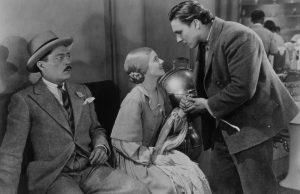
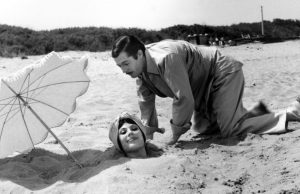
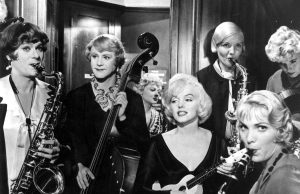






Leave a Reply